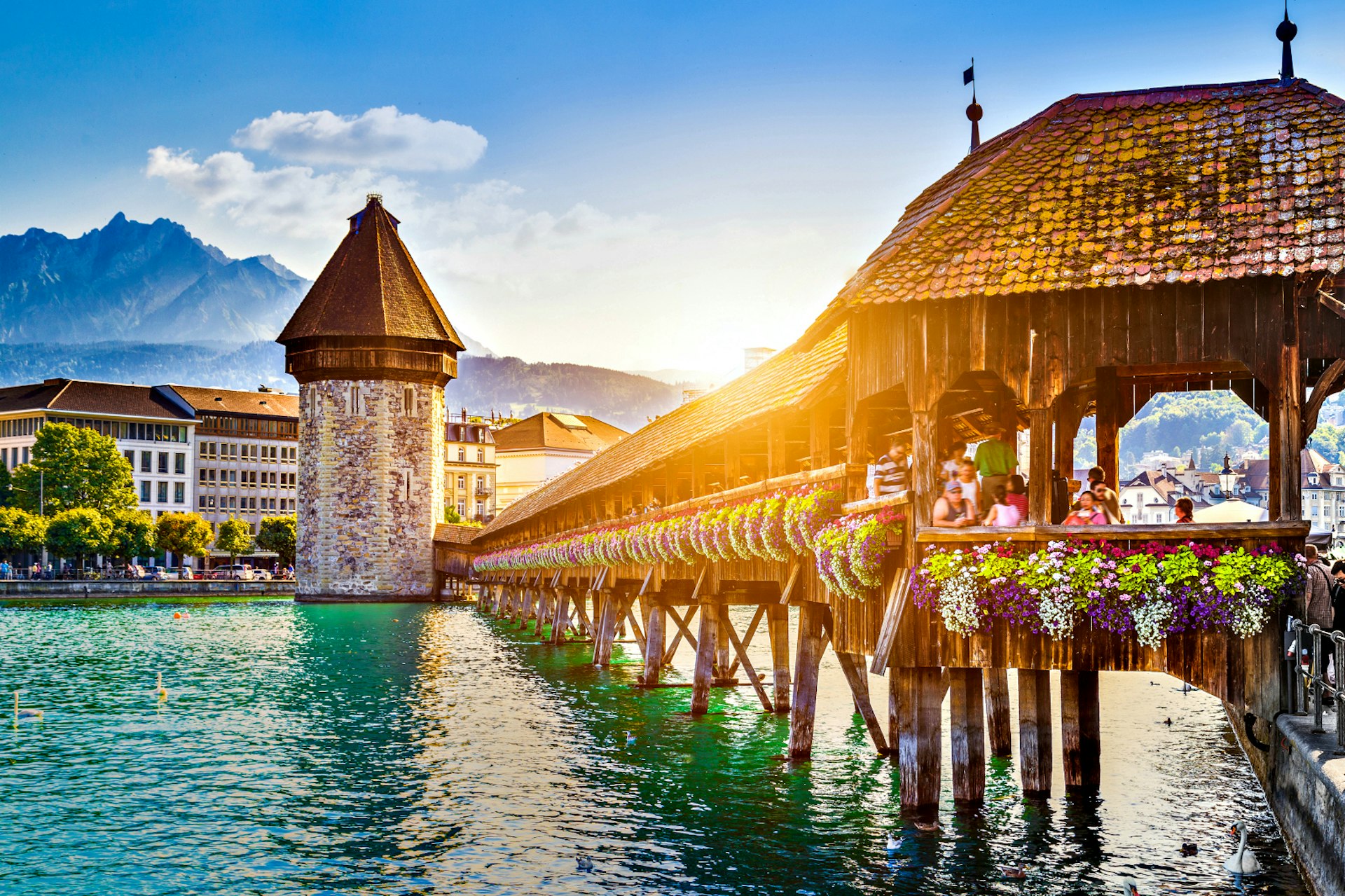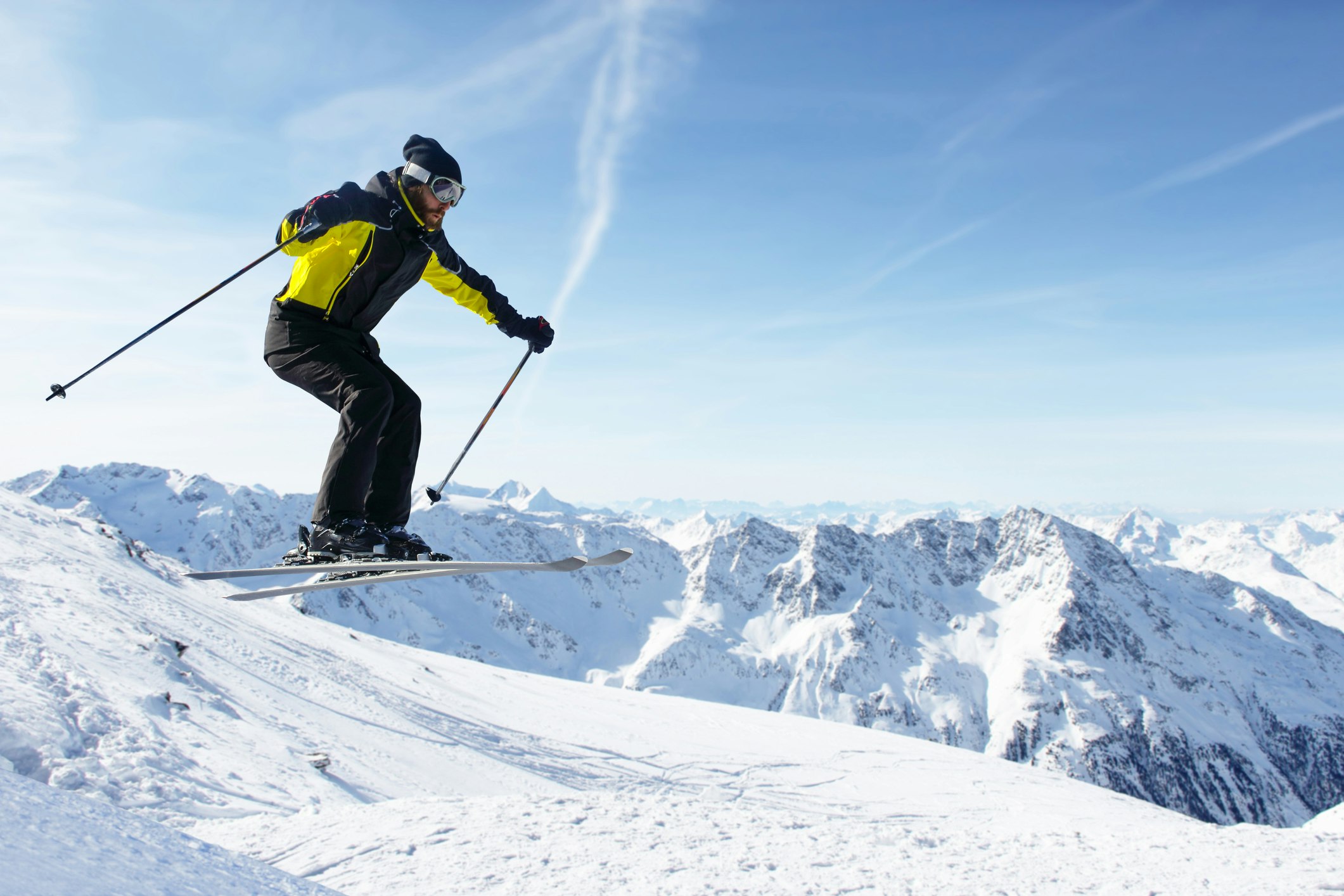Let’s face it, Switzerland doesn’t immediately spring to mind when you utter the words ‘cheap break’. This small alpine nation is known for being one of the priciest countries in Europe, with several of its cities regularly cited as among the world’s most expensive places to live.
But traveling within Switzerland on a modest budget is possible. If you plan carefully, make the most of available transport deals and prioritize the countryside over cities, this beautiful country is navigable by even the most frugal of travelers.
Get more bang for your buck on public transport
Switzerland’s famously efficient public transport system has a huge reach, with SBB trains and distinctive yellow postbuses supplying access to even the tiniest hamlet up the remotest mountain road. Tickets may seem expensive, but if you plan ahead there are ways to cut costs, and weighed against the price of car hire, fuel and parking, it’s an economical and hassle-free way to travel.
Designed for tourists, the Swiss Travel Pass offers unlimited travel across Switzerland from three to 15 days. Similar regional passes, such as the Tell-Pass in Central Switzerland, offer value for money if you’re traveling a lot within a certain area.
For longer stays, your best bet is a Half-Fare Travelcard, which allows you to buy tickets across the transport network at 50 percent discount; the yearly option is popular with Swiss residents, but there’s also a cheaper version just for tourists, valid for a month.
For more sporadic journeys, download the SBB app and search for Supersaver tickets, bookable in advance for specific services, or Saver Day Passes, which are good value if you want to travel a long way in a single day. The further ahead you book, the cheaper these tickets are. Kids under six travel free.
Ride local transport for free with your guest card
A small tourist tax is added to overnight stays in Switzerland, but in return you’re given a guest card, which offers free local public transport and sometimes extra benefits, such as cut-price admission to museums and attractions. The Ticino Ticket is the best example, offering free train and bus travel, plus discounts on mountain railways, cable cars, museums and activities within the Italian-speaking canton of Ticino.
Take a self-guided lake tour
Most transport passes, including the Swiss Travel Pass, Half-Fare Travelcard and Saver Day Pass, cover boat services too, so you can spend all day riding the ferries on Lake Geneva, Lake Lucerne or Lake Zürich within the terms of your pass.
And it’s not hard to fill your time – so large is Lake Geneva (Lac Léman, to give it its proper name) that the journey from Geneva to Montreux by ferry takes nearly six hours. Sit on deck and soak up the sun as you travel – but don’t forget a hat and sunblock (which you should bring with you, since it’s expensive to buy here).
Book into a swanky Swiss hostel
Even the most modest hotels can be budget-blowing in Switzerland, but thankfully there are alternatives. Swiss youth hostels are among the swankiest in the world, and while prices aren’t dead cheap, a dorm bed in the Saas-Fee Wellness Hostel 4000 (from Sfr61) or the Backpackers Lucerne (from Sfr34) is considerably less than a hotel room. Most hostels have kitchens so you can save money by cooking instead of eating out.
Head for the hills for bargain beds
If you’re willing to put in the – sometimes considerable – effort to hike there, Swiss Alpine Club cabins offer relatively inexpensive beds in eye-popping locations across the Swiss Alps and are open to non-members. Book ahead for a dorm bed, dinner and breakfast, and you’re guaranteed great food, a convivial atmosphere and the biggest starry skies you’ve ever seen. As an example, Cabane Rambert in the Vaud Alps costs Sfr43 for a dorm bed or Sfr91 half-board. Bring your own sheet sleeping bag.
Another budget choice is camping – check out camping.ch or tcs.ch for options. Swiss campsites are clean, well equipped and usually easily reachable by postbus, with prices starting from about Sfr9 per adult per night. You could even wild camp for free, though rules vary across the country, so always check with the local tourist office, ask permission if you’re on private land and follow the Swiss Alpine Club’s rules.
Lastly, the organization Agroturismo lists bed-and-breakfast options in farmhouses around the country, including places where you can bed down in a barn, known as Schlafen im Stroh (Sleep in Straw), for a bargain price.
Explore Switzerland’s glorious landscape gratis
Once you’ve got your transport and accommodation sorted, the best thing about Switzerland – the great outdoors – is completely free. The country’s numerous hiking and biking trails are well marked, with detailed maps available to download on Wanderland.ch.
If you have a travel pass, choose a starting point that’s accessible by public transport rather than shelling out extra for cable-car rides. As a rule, access to any village or community is part of the public-transport network. For example, the lift from Mörel to the mountain village of Riederalp is part of the network, while the cable car from Riederalp to the Moosfluh viewpoint over the Aletsch glacier – Europe’s longest river of ice – is run by a private company and ticketed separately. Save the fare and hike up instead.
Take a picnic – and make it vegetarian
Stopping off in a mountain cabin for a beer and a platter of meat and cheese is all part of the hiking experience, but if you’d rather save your centimes, pack a picnic instead.
There’s a Coop or Migros supermarket at most rail stations, so fill your backpack with fresh bread and pastries, dried meat, hunks of Gruyère cheese, pre-packaged salads and bottles of Rivella – a typically Swiss, milk-based fizzy drink – for a picnic in the hills among the alpine flowers and marmots. Meat can be expensive in Switzerland, so you’ll save even more if you go veggie.

See the city sights on the cheap
It costs nothing to stroll through Bern’s Unesco-listed medieval center, cross Lucerne’s 14th-century Kapellbrücke or ogle the jet d’eau fountain in Geneva.
And if you plan carefully, it’s possible to visit many museums on the cheap too – the Kunsthaus Zürich offers free admission on Wednesdays, the Kunstmuseum Basel is free in the early evenings and the Musee d’art et d’histoire in Geneva has “pay what you can” entry. Children get in gratis to most museums.
Tuck into low-cost leftovers
The amusingly named Äss Bar (ässbar in Swiss German, from essbar in German, meaning “edible”) is an anti-wastage initiative that collects the bread, cake and pastries remaining in bakeries at the end of the day and sells them at low prices in its own shops the day after. It’s a good way to pick up a sandwich for a bargain Sfr4 or a slice of cake for Sfr3. Look out for it in Zürich, Lausanne, Basel, Biel, Bern, Lucerne and Winterthur.
Similarly, the Too Good to Go app hooks up customers with restaurants that have leftover food to sell at the end of service. If you’re willing to be flexible and spontaneous, you can buy dinner for a lot less than in the restaurant itself.
Enjoy some local lake life without spending a franc
Summertime in most Swiss cities revolves around the local waterways. Whether you’re in Zürich, Lausanne or Lucerne, you’ll find open-air swimming spots all over town, often with free or low-cost facilities.
Try the Oberer Letten baths on the River Limmat in Zürich, or Vidy beach near Lausanne on Lake Geneva, both of which are free. In Bern and Basel, put your belongings in a dry bag and float through the city in the fast-flowing River Aare and Rhine, respectively.
Book a low-cost autumn flight and see Switzerland turn golden
Fall is one of the best times to visit Switzerland, and flights are generally much cheaper than in summer or ski season.
September is ideal for hiking and biking, with the mountain lifts still open and the weather usually balmy instead of scorching. Most of the lifts are shut in October, but choose a hike accessible by train or bus and you’ll be rewarded with a blaze of autumnal color in the larch forests, a glorious sight that summer tourists miss out on.

Be a savvy skier at one of Switzerland’s lesser-known resorts
Skiing at a famous Swiss resort, such as Zermatt or Verbier, is an expensive business, not just for the ski pass but for the food and accommodation too. So soften the blow by choosing a less glitzy resort, where everything’s a bit more reasonable. Try Grimentz-Zinal in the Val d’Anniviers, Villars-Les Diablerets in the Vaud Alps or Leukerbad in the Valais.
If you’re planning to ski a lot, the brilliant Magic Pass offers unlimited access to 69 ski areas in Switzerland for the super-low price of Sfr399 if you buy it in early April for the following season. As a comparison, the season pass for Zermatt alone is Sfr1890.
Take your own water bottle and fill up for free
Tap water not only tastes a lot better in Switzerland than it does elsewhere (UK, I’m looking at you), but it’s also freely available from water fountains all over the country. Take a refillable bottle and top up wherever you go, from city-center fountains to mountains springs. It’s all drinkable as long as it doesn’t have a sign saying non-potable/kein Trinkwasser.
Avoid city-center pubs and enjoy a pint at altitude instead
Drinking alcohol (or even a coffee or two) in Swiss cities can be a real wallet drainer, with cocktails at around Sfr25 and a pint of beer topping Sfr9 in Lausanne and Geneva. But that’s not the case everywhere. Head to a café or restaurant in a small village and you may find drinks are a lot cheaper, and your Sfr6 pint might just come with a delicious mountain view too.
Daily costs in Switzerland
- Hostel room: Sfr30–60 (dorm bed)
- Basic room for two: Sfr120–150
- Self-catered apartment: From Sfr150
- Public transport ticket Geneva to Bern (159km): Sfr51
- Coffee: Sfr3.50–5.50
- Sandwich: Sfr6–10
- Dinner for two: Sfr80–100
- Pint at the bar: Sfr6–9
- Average daily cost total: Sfr200–300
